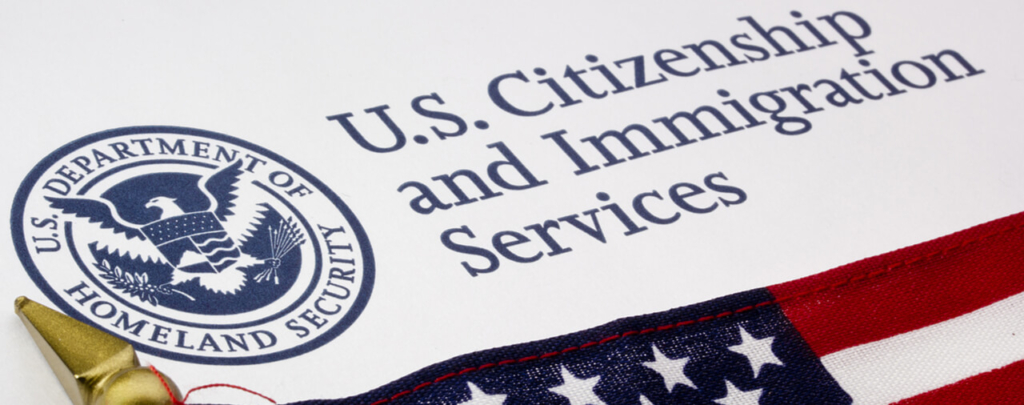- Introduction: Matter of W-Y-C- & H-O-B-, 27 I&N Dec. 189 (BIA 2018)
- Factual and Procedural History: 27 I&N Dec. at 189-90
- Issue
- Analysis and Conclusions: 27 I&N Dec. at 190-93
- Applying the Facts to the Instant Case: 27 I&N Dec. at 191-93
- Conclusion
Introduction: Matter of W-Y-C- & H-O-B-, 27 I&N Dec. 189 (BIA 2018)
On January 19, 2018, the Board of Immigration Appeals (BIA) issued a published decision in Matter of W-Y-C- & H-O-B-, 27 I&N Dec 189 (BIA 2018) [PDF version]. The Board made two key holdings in its decision. Firstly, it held that an applicant for asylum or withholding of removal who is seeking relief based on his or her membership in a particular social group “must clearly indicate on the record before the Immigration Judge the exact delineation of any proposed particular social group.” Second, it held that the BIA “generally will not address a newly articulated particular social group that was not advanced before the Immigration Judge.” Both holdings point to a general rule that applicants for asylum and withholding in immigration proceedings must clearly articulate particular social group claims before an Immigration Judge rather than waiting to do so on appeal.
In this article, we will carefully examine the factual and procedural history of Matter of W-Y-C- & H-O-B-, the Board’s analysis and conclusions, and what the decision means going forward.
Factual and Procedural History: 27 I&N Dec. at 189-90
The respondents (a mother and her minor son), natives and citizens of Honduras, entered the United States without being admitted or paroled. On this basis, they were charged as removable under section 212(a)(6)(A)(i) of the Immigration and Nationality Act (INA).
In immigration proceedings, the respondents conceded that they were removable as charged. The female respondent applied for asylum and withholding of removal based on her membership in a particular social group (her son’s claim for relief was based on her applications for asylum and withholding). The respondent argued that she was a member of a particular social group comprised of “[s]ingle Honduran women age 14-30 who are victims of sexual abuse within the family and who cannot turn to the government.”
The Immigration Judge concluded that the respondent’s social group, as described, was not cognizable and therefore did not constitute a particular social group. Accordingly, the Immigration Judge rejected the respondent’s applications for asylum and withholding because he determined that the respondent did not establish that the harm she had suffered or feared suffering in the future was based on her membership in a particular social group.
The respondent appealed from the denial to the BIA. On appeal, she conceded that the Immigration Judge was correct in concluding that the social group she described in removal proceedings did not constitute a “particular social group” based on existing precedent. However, she argued that she was nevertheless “eligible for asylum and withholding of removal based on her membership in a new particular social group that she … articulated for the first time on appeal.” The new social group consisted of “Honduran women and girls who cannot sever family ties.”
Issue
In short, the question for the Board was whether it could consider the respondent’s applications for asylum and withholding of removal based on a new particular social group that she articulated for the first time on appeal. If so, the Board could then consider whether she sustained her burden of establishing eligibility for asylum and/or withholding of removal based on her membership in the newly articulated particular social group. However, as we will see, the Board would conclude that it could not consider the respondent’s newly articulated particular social group because she did not delineate it before the Immigration Judge.
Analysis and Conclusions: 27 I&N Dec. at 190-93
The Board began by citing to its own decision in Matter of Fedorenko, 19 I&N Dec. 57, 74 (BIA 1984) [PDF version], wherein it held that it “is an appellate body whose function is to review, not create, a record.” In short, a factual record is created during immigration proceedings before an immigration judge. Either the respondent or the government may appeal from an immigration judge’s decision to the BIA. In Matter of Fedorenko, the Board articulated its role as being to review the factual record created in proceedings before an immigration judge and render a decision based on the existing record, rather than to create a new record or add to the record on appeal.
The Board stated that in previous published decisions, it has held that it generally does not consider claims that could have been advanced before an immigration judge but, for whatever reason, were not advanced. For example, in Matter of J-Y-C-, 24 I&N Dec. 260, 261 n.1 (BIA 2007) [PDF version], the Board declined to consider a new basis for an asylum claim that was not broached before the immigration judge.
The instant case arose in the jurisdiction of the United States Court of Appeals for the Fifth Circuit, meaning that the Board was bound to follow any applicable Fifth Circuit precedent in considering the case. However, the Board noted that the Fifth Circuit has, in published decisions, upheld the Board’s authority to decline to consider arguments broached for the first time on appeal. For example, the Board cited to the Fifth Circuit decision in Eduard v. Ashcroft, 379 F.3d 182, 195 n.14 (5th Cir. 2004) [PDF version] (finding it irrelevant that petitioners had staked claim for relief under the Convention Against Torture (CAT), because the claim was broached for the first time before the BIA). The Board added that several other circuits have reached the same conclusion with regard to the scope of the Board to decline to consider claims articulated for the first time on appeal. For example, see the decision of the United States Court of Appeals for the Second Circuit in Prabhudial v. Holder, 780 F.3d 553, 555 (2d Cir. 2015) [PDF version] (holding that “[i]t is a basic rule of appellate review, judicial or administrative, that the appellate body may conclude that an argument not advanced before a lower court has been waived.” Excerpted by Board.).
The Board described removal proceedings as follows: “Removal proceedings, which are adversarial in nature, are designed to provide the parties with an opportunity to develop the record by presenting evidence and testimony before an Immigration Judge, who makes the necessary factual findings and legal conclusions based on the claims presented.” On this point, the Board cited to its published decision in Matter of L-A-C-, 26 I&N Dec. 516, 521 (BIA 2015) [PDF version]. Citing to Id. at 518-24, the Board explained that an applicant has the burden of establishing his or her claim for relief or protection from removal before the Immigration Judge. (Emphasis added.) What does this mean in the asylum and withholding of removal context? In Matter of A-T-, 25 I&N Dec. 4, 10 (BIA 2009) [PDF version], the Board held that an applicant for asylum or withholding must “’clearly indicate’ on the record before the Immigration Judge ‘what enumerated ground(s) [he or] she is relying upon in making her claim.’” Matter of A-T- followed a published decision of the Attorney General in Matter of A-T-, 24 I&N Dec. 617, 623 n.7 (A.G. 2008) [PDF version], in concluding that, when an applicant makes a claim for asylum or withholding of removal based on his or her membership in a particular social group, the applicant has the burden of clearly indicating “the exact delineation of any particular social group(s) to which [he or] she claims to belong.” This, of course, refers to the applicant’s burden before the Immigration Judge, before the case ever reaches the BIA on appeal.
However, the Board stated that, while the applicant has the burden to specifically delineate a particular social group before the Immigration Judge, “the Immigration Judge should ensure that the specific group being analyzed is included in his or her decision.” In cases where the applicant is unclear as to the exact delineation of a particular social group, “the Immigration Judge should seek clarification…” The Board noted that, in the instant case, the Immigration Judge did in fact seek clarification as to the exact delineation of the application’s particular social group. The Board stated, as a general principle, that it is “important to our appellate review that the proposed social group is clear and that the record is fully developed.”
Regarding inquiries involving particular social groups specifically, the Board took the position that “[t]he importance of articulating the contours of any proposed social group before the Immigration Judge is underscored by the inherently factual nature of the social group analysis.” First, citing to Matter of L-E-A-, 27 I&N Dec. 40, 42 (BIA 2017) [see article], the Board explained that determinations of whether a particular social group is “cognizable” are made on a case by case basis, “depending on whether the group is immutable and is recognized as particular and socially distinct in the relevant society” (quoting from Matter of L-E-A-). If the applicant establishes the contours of a cognizable particular social group, he or she must then establish (1) his or her membership in the particular social group, and (2) that he or she fears persecution on account of membership in that particular social group. Id. at 43-44. The Board stated that the resolution of these issues is “inherently factual in nature.” Id. at 44.
Regarding its own jurisdiction, the Board explained that it reviews whether a particular social group is cognizable de novo, or from the beginning. That means that the Board’s determination of whether a particular social group is cognizable is not dependent on the Immigration Judge’s conclusion on this point. However, the Board explained that it “review[s] an Immigration Judge’s factual findings underlying that determination for clear error.” To this effect, the Board pointed to 8 C.F.R. 1003.1(d)(3)(i), (ii).
Applying the Facts to the Instant Case: 27 I&N Dec. at 191-93
Finally, the Board applied its conclusions to the facts of the instant case. Here, the Board noted that the Immigration Judge did not have the opportunity to make relevant factual findings on the respondent’s claim because the respondent broached her new particular social group in the first instance on appeal. Citing to 8 C.F.R. 1003.1(d)(3)(iv), the Board explained that it could not make factual findings in the first instance on appeal. The Board then stated that, “absent other dispositive findings, a remand for further fact-finding and a new decision may be unavoidable if an applicant is allowed to ‘change the description of her purported social group midstream.’” Quoting from Arévalo-Girón v. Holder, 667 F.3d 79, 82 n.2 (1st Cir. 2012) [PDF version]. Notably, in Arévalo-Girón, the First Circuit declined to address a particular social group claim that was articulated for the first time on appeal. The Board added that allowing for remands for further fact-finding and a new decision in the event that an applicant changes his or her description of a social group “midstream” would “further strain the limited resources of our already overburdened Immigration Court system to remand a case to develop a claim that could have been raised previously.”
In the instant case, the Board explained that the respondent was represented by counsel before the Immigration Judge and had had the opportunity to advance her subsequently delineated new social group at that time. Here, the Board noted that the respondent argued that her new social group was supported by the Board’s decision in Matter of A-R-C-G-, 26 I&N Dec. 388 (BIA 2014) [PDF version]. The Board explained that this did not create any basis for remand because Matter of A-R-C-G- was decided and published prior to the respondent’s removal proceedings, meaning that she could have made the same legal arguments during her removal proceedings.
The Board explained that “even if [it] construed the articulation of a new social group for the first time on appeal as a motion to remand, such a motion would not be based on new, previously unavailable material evidence.” To this effect, the Board cited to Matter of Coelho, 20 I&N Dec. 464, 471-73 (BIA 1992) [PDF version], wherein the Board set forth requirements for a motion to remand.
For these reasons, the Board declined to remand proceedings for the purpose of the Immigration Judge making factual findings regarding the respondent’s newly delineated particular social group. Furthermore, the Board declined to consider the newly delineated particular social group in the first instance on appeal. To this effect, the Board cited to several Federal appellate court decisions, including the decision of the United States Court of Appeals for the Eighth Circuit in Baltti v. Sessions, 862 F.3d 718, 723-24 (8th Cir. 2017) [PDF version], wherein the Eighth Circuit concluded that it had no jurisdiction to review a new particular social group claim where the claim was based on “membership in that narrowed social group” that had not been raised previously.
Conclusion
The Board’s decision, although unfavorable for asylum and withholding of removal applicants seeking relief based on membership in a particular social group, does not represent a departure from the Board’s prior disposition on the issue. This point is evinced by the number of prior published Board decisions — and one prior Attorney General decision — that the Board relied upon to support its decision. Furthermore, various Federal appellate courts, including the Second Circuit (encompassing Connecticut, New York, and Vermont), have affirmed the Board’s authority to decline to consider claims raised in the first instance on appeal.
The decision highlights the importance of raising all claims for relief before an immigration judge. In this case, the Board noted that the respondent had the opportunity to raise her second particular social group claim before the immigration judge but failed to do so. In general, applying for asylum [see category] and withholding of removal [see article] is a complicated process, and it is no less so when the claim is based on a particular social group. Although nothing will guarantee a favorable outcome, it is crucial for an applicant for relief to work with an experienced immigration attorney from the onset of proceedings and throughout the entire process in order to make the best case for relief.
The Board’s decision does not necessarily foreclose all new social group claims. For example, the Board alluded to the fact that the decision the respondent had relied upon in delineating her second social group was issued prior to her removal proceedings. Had it been issued after, it is possible (although not guaranteed) that the Board would have been more amenable to ordering remand. In certain cases where there are intervening circumstances or where a respondent was otherwise not given an opportunity to fully develop his or her claim in removal proceedings, it is possible that the Board may consider remanding the record. Whether this will be available in a given case will depend on specific case-specific facts.
As always, regardless of the specific situation, an alien in removal proceedings should always seek the counsel of an experienced immigration attorney expeditiously.
To read our other articles on published BIA decisions, including many about asylum and withholding claims in proceedings, please see our comprehensive index [see index].



-1024x405.jpg)
-1024x405.jpg)
